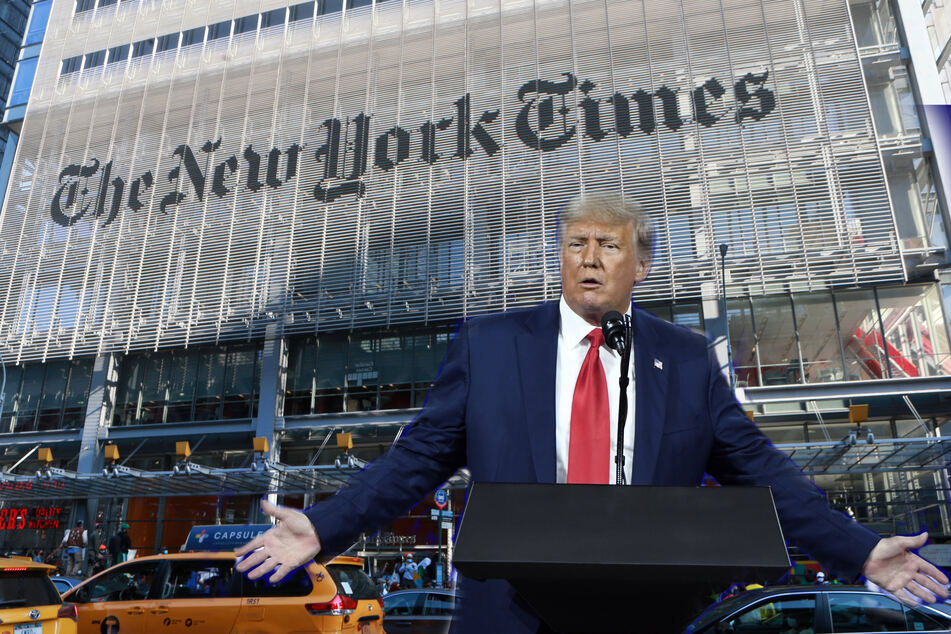Trump loses New York Supreme Court battle against New York Times
New York, New York - A New York Supreme Court justice on Tuesday dismissed a Trump campaign lawsuit claiming the New York Times defamed the former president by publishing an opinion piece that accused him of colluding with Russia in the 2016 election.

The Trump camp’s lawsuit failed to show that the paper acted with actual malice – a high legal bar required for successful defamation actions – by publishing the March 2019 piece entitled "The Real Trump-Russia Quid Pro Quo," Justice James d’Auguste wrote in a ruling.
"In this regard, bias, or ulterior motive does not constitute actual malice," d'Auguste wrote.
A spokesperson for Donald Trump did not return a request for comment after the ruling.
The opinion piece, penned by former New York Times executive editor Max Frankel, argued there was an "overarching deal" between the Russian government and Trump's campaign to get him elected in 2016.
The US intelligence community had concluded that Russia interfered in the 2016 election with the explicit goal of helping Trump win, and federal investigators uncovered a string of peculiar ties between Trump associates and Kremlin operatives.
But Trump has denied any active collusion in Russia's 2016 attack, and special counsel Robert Mueller concluded his probe without stating definitely that the former president knew anything of Moscow's meddling.
Ambiguities about the Russia scandal aside, d'Auguste said the Trump campaign was not even close to meeting the "actual malice" standard with its suit against The Times.
"This heavy burden exists because news organizations function as a platform for facilitating constitutionally protected speech on issues of public concern and courts will not impose defamation liability against these entities absent a clear showing of actual malice," d'Auguste wrote.
Cover photo: Collage: IMAGO / MediaPunch & UPI Photo
